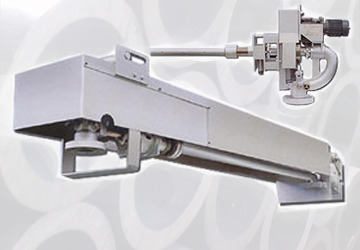
The Ultimate Guide to Sootblower Replacement Parts
Sootblowers are essential components of industrial boilers. Just like the name implies, they can remove soot and ash buildup from a boiler’s heat exchange surfaces.
Home » What is a Biomass Boiler and How Does it Work?
Like the industrial boilers, we’re familiar with, a biomass boiler is a system that generates heat and energy. But, instead of consuming natural gas, coal, or other fossil fuels, biomass boilers generate energy through biomass combustion. Biomass in the form of wood was the largest source of American energy consumption until the mid-1800s when coal became our primary energy source.
A biomass boiler can convert biomass into energy through a few different processes. The most common method for industrial biomass boilers is direct combustion, where biomass burns, releasing heat that can warm buildings, heat water, or generate electricity via steam turbines. Additionally, biomass boilers can use thermochemical processes to create liquid or gaseous fuels like renewable diesel, methane, or renewable jet fuel.
There are numerous sources of biomass fuel, including:
Animal manure and human sewage
Each type of biomass has unique pros and cons related to its use. Wood chips, for example, are often a popular choice because of their low cost compared to other fuel options. However, wood chips are also less efficient than other fuels like wood pellets, whose dense composition allows them to burn longer and release more energy.
Industrial biomass boilers can be customized to fit the needs of each specific industry and application, with options ranging from:
Fully automated industrial biomass boilers
The benefits of fully automated boilers remove most of the upkeep and maintenance necessary to keep the system running, like ash removal, and eliminate costly downtime.
With renewable biomass as fuel, biomass boilers are a sustainable alternative to traditional boilers. During biomass growth (the life cycle of trees, crops, etc.), carbon is absorbed and removed from the environment. When this fuel source burns, the same level of carbon is released as was absorbed during its growth, creating a net-neutral carbon exchange.
Additionally, because biomass like lumber and agricultural products are renewable, we will never run out of these fuel sources as we would with fossil fuels.
Adopting sustainable energy solutions is increasingly crucial as our energy consumption continues to rise. Global energy consumption increased by nearly 42% from 2000 to 2019, with most of that energy coming from coal, oil, and natural gas.
Through their use in heating or industrial processes, industrial biomass boilers can help diminish our reliance on fossil fuels directly by eliminating the natural gas needed to power a traditional boiler. When using a combined heat and power industrial biomass boiler, carbon impact can be further offset by generating electricity sustainably and reducing a company’s need for electricity generated by fossil fuels.
When we hear about a new product or process that offers a sustainable alternative, we often think of the higher price tag that must accompany that product. Not only are biomass boilers price competitive, but they can actually save money in the long term through reduced operating costs.
According to numbers provided by Green Square, wood pellets, one of the most common biomass fuel sources, cost nearly the same per kWh of energy generated in biomass boilers compared to natural gas prices in the United Kingdom. Wood pellets offer a comparable operating cost in a biomass boiler to a natural gas boiler, and there are even cheaper fuel options like wood chips to consider.
Companies can reduce costs further by adopting combined heat and power industrial biomass boilers that generate electrical power. This electricity could help meet the energy needs of the company and reduce utility costs, while excess energy generated could be sold for a profit.
With benefits in sustainability and cost comparison, biomass boilers are a great option to consider for residential, commercial, or industrial projects. Industrial Boilers America is a proud provider of industrial biomass boilers and works with our clientele to provide industry expertise that can help them meet their goals while leading them toward a zero-waste future.
Speak with one of our experts to see how industrial biomass boilers can help you reach your goals.
At Industrial Boilers America, we lead in providing the development, licensing, and deployment of Industrial Power plants. We partner with other leaders of communities and governments to foster long-term relationships that create sustainable energy, jobs, and social responsibility. Our philosophy that sustainability should be rooted in the betterment of the ecosystem rather than profit allows us to provide services that will enable our partners to reinvest in themselves, resulting in a sustainable community.

Sootblowers are essential components of industrial boilers. Just like the name implies, they can remove soot and ash buildup from a boiler’s heat exchange surfaces.

Boilers provide essential heating and steam generation for industries ranging from power production to manufacturing. To ensure safety, efficiency, and functionality, rely heavily on sophisticated

Industrial boilers are essential for keeping the world moving. Understanding the critical industrial boiler parts ensures efficient operation, safety, and longevity of equipment. Main Industrial